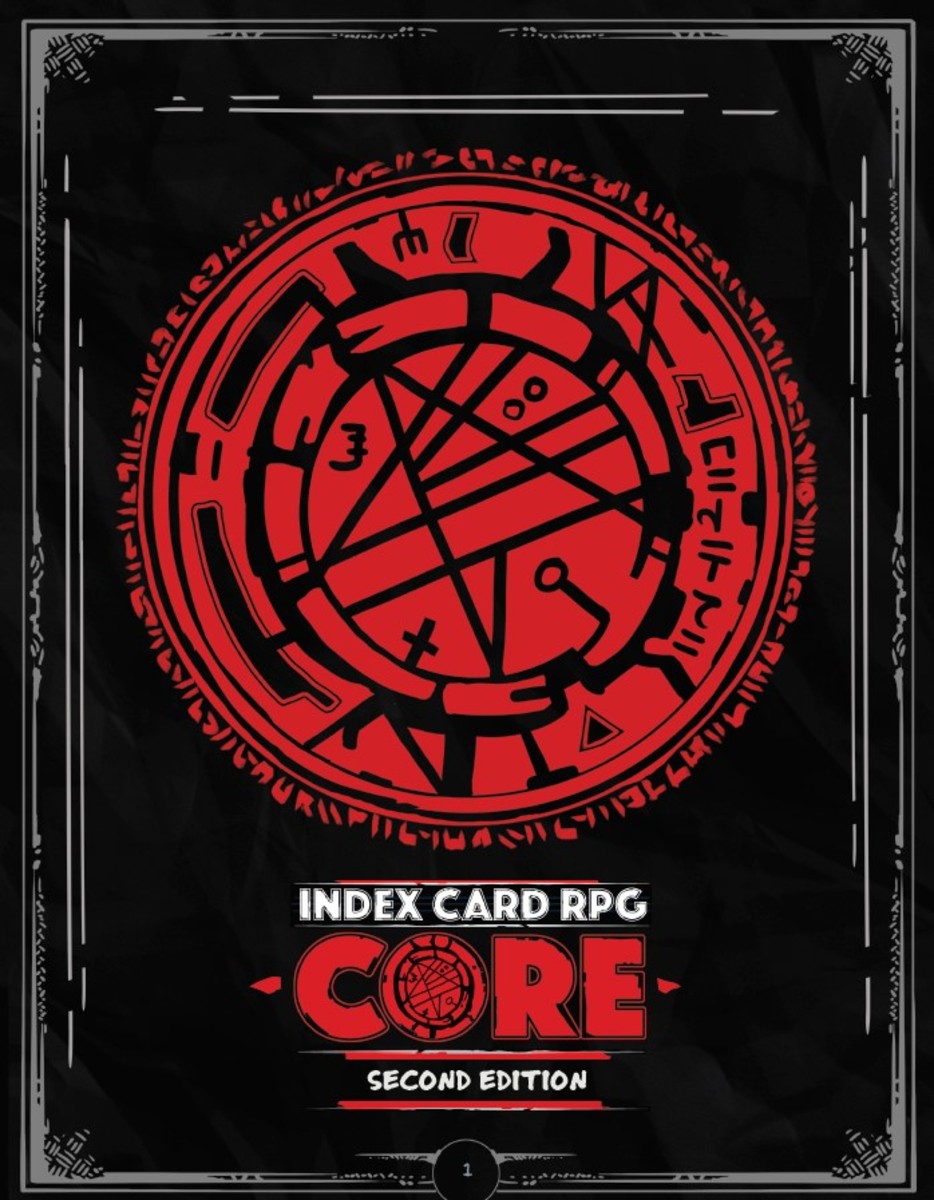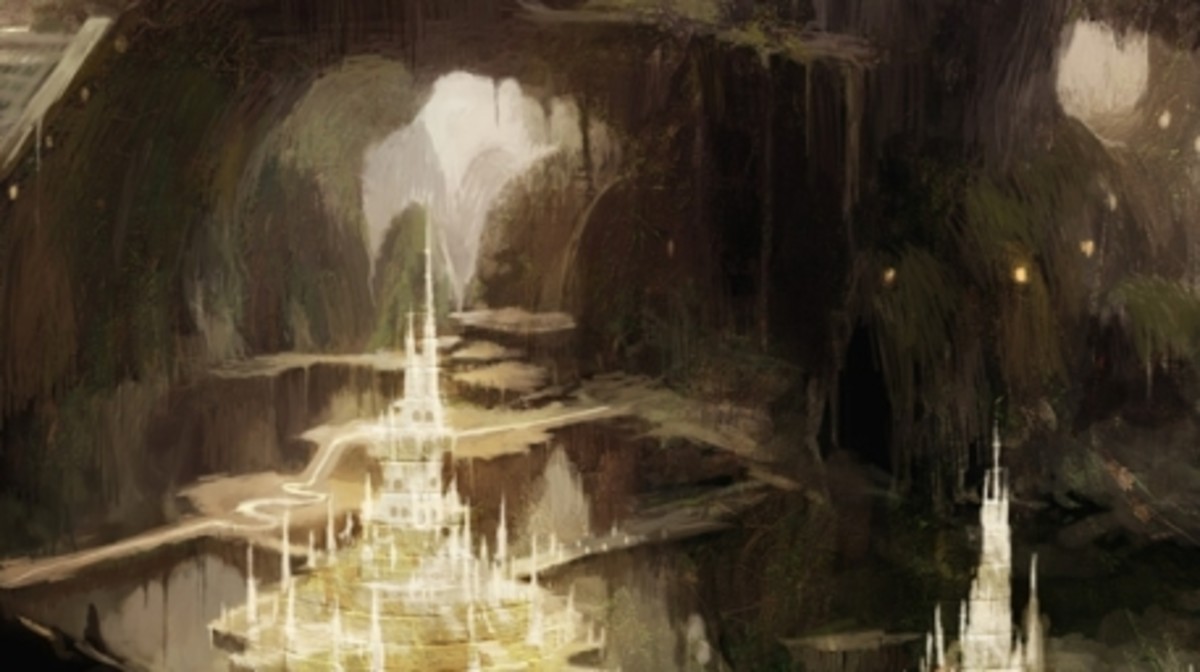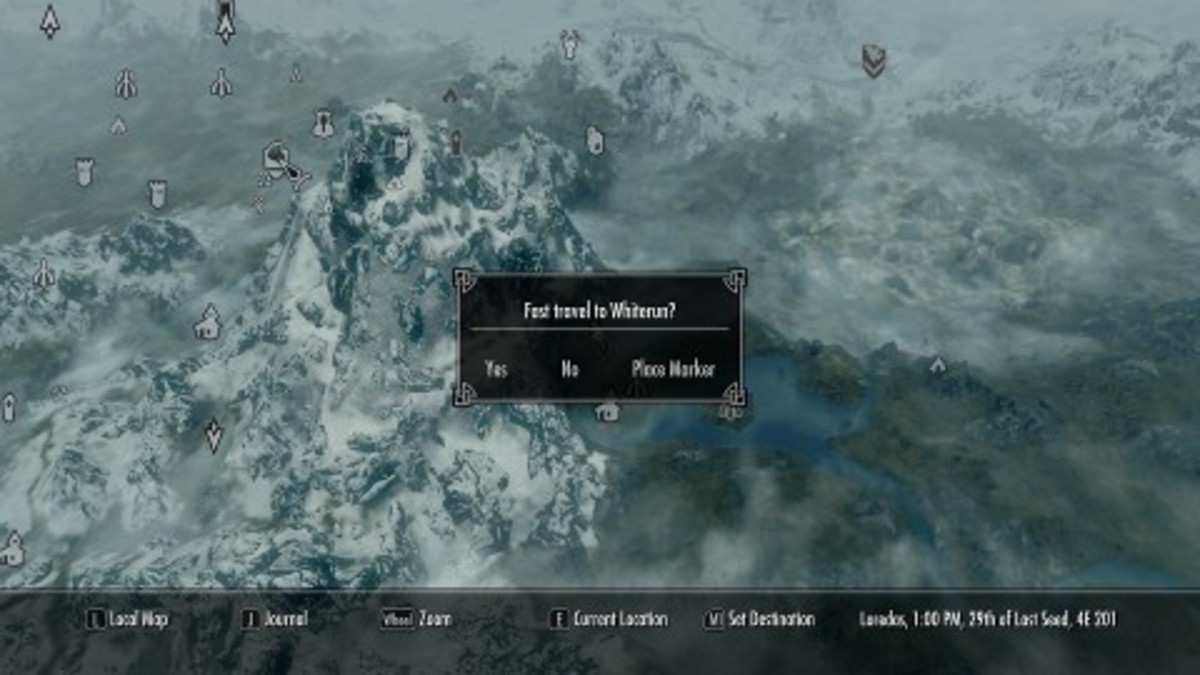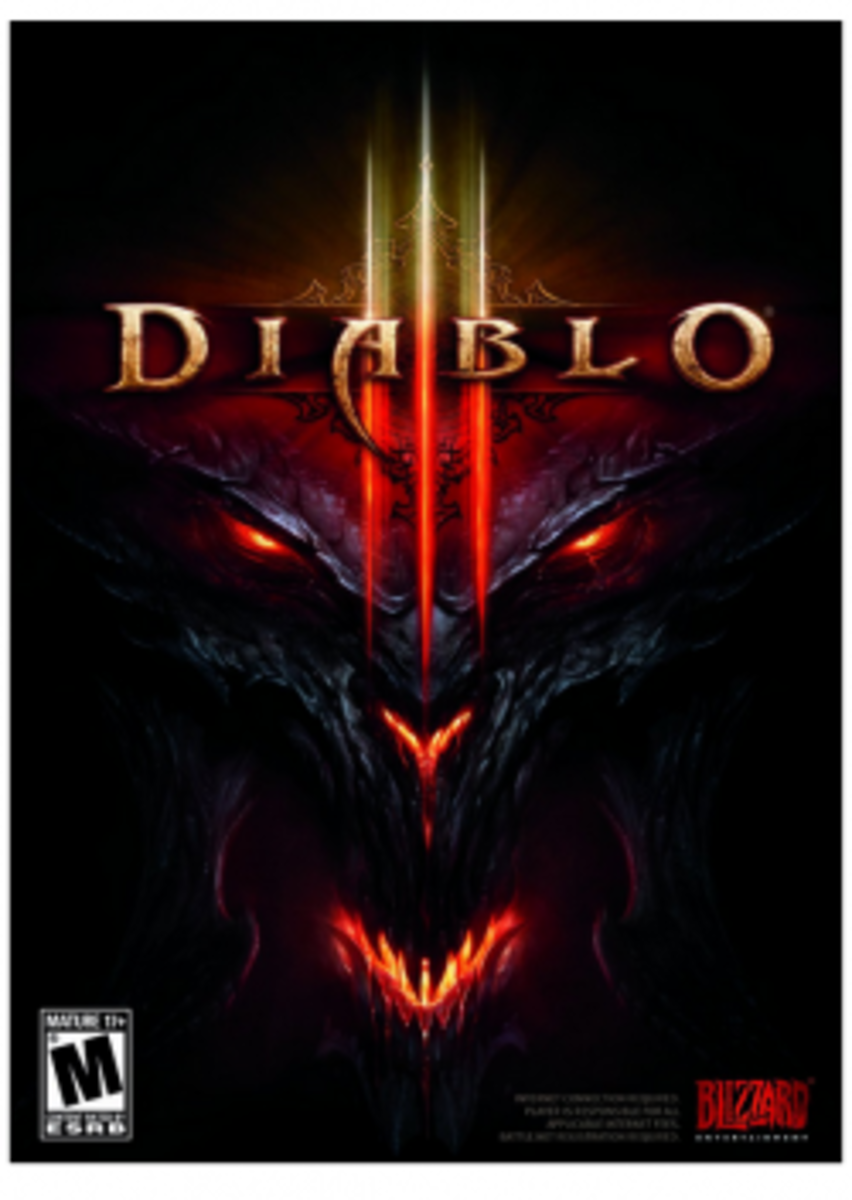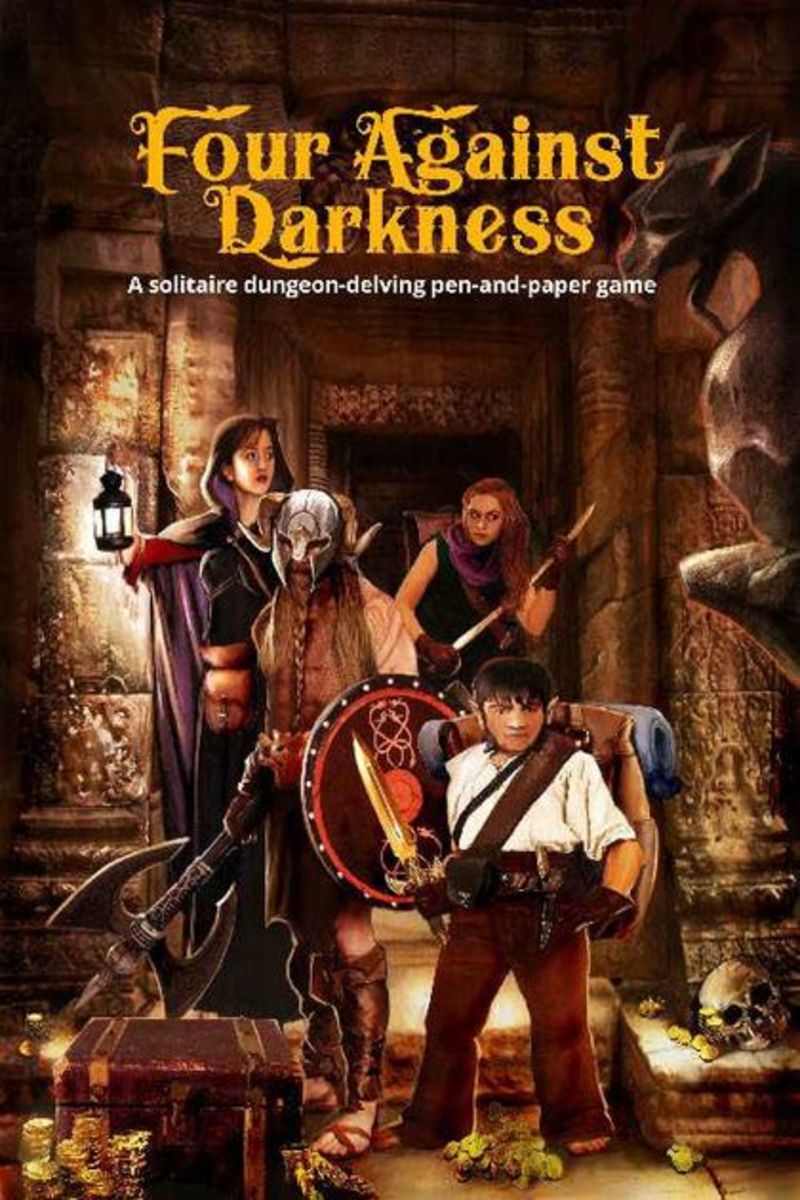Role Playing Systems
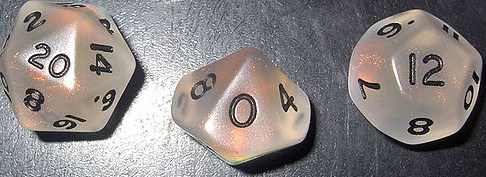
The Books You'll Need
Like pen and paper role playing but had enough of Dungeons and Dragons? If you feel as I do that DND churns out generic fantasy and uninteresting play (or if you just have an interest in other gaming systems) here is a review of the many systems I'm familiar with, ranked according to my preferences, but with a special note first. RPG corebooks are pricey and many of these systems have corebooks that are long out of print. In some cases I have links to in print additions that are quite different from the older systems I review. I can't make any guarantees as to their quality.
#1 Mage the Ascension
This game is quite unlike any other. The basis of this game is that reality, far from adhering to unchanging static physical rules, is in fact quite fluid. It can be altered provided that one has the will and enlightenment to do so. All human beings possess an avatar, the magic part of themselves. When this avatar is awake the human becomes a mage, able to bend reality according to some extremely basic rules and the discretion of the game master. Whereas other games offer lists of spells that when cast always have the same static effects, the mage can bend reality to their specific needs.
Let’s say you want to get someone to leave work under the impression that they have a dire illness. In DND you might use cause disease and then revoke it. In Mage on the other hand, you could simply heat up the area around the target to make him think he has a fever without harming his health whatsoever. Of course, bending reality is a tricky business that often accumulates paradox (reality pushes back). But just like magic, paradox is also left to the imagination, and the appropriate situation.
If you’re not catching the three selling points of Mage let me spell them out: Imagination, Imagination, Imagination. The only limits in this game system are the energy and creativity of the players and game masters.
#2 Paranoia
You ever get tired of games where you’re forced to work together, where stupid/impulsive actions can derail a well thought out campaign, where you’re full ready to betray the interests of the party but you can’t because the other players are your friends? Well, welcome to the world of Paranoia. Unlike every role playing system I’ve encountered, paranoia thrives on players that act in their own interests rather than the group, where stupidity is amusing, and betrayal has a constant presence.
The world of Paranoia is that of Alpha Complex which is run by an all loving (read sadistic) computer that sends the characters on impossible missions in its own honor. Remember all those bland games where the PC’s meet in a bar? Well Paranoia characters meet in a briefing room, except they’re never given its location. Many characters have died as a result of trying to find the briefing room and the game master (as the Computer) is being soft if a character doesn’t die on the way to the briefing room. But don’t worry, you have clones. Yes, much like an impossible video game, you’re given extra lives (6 clones). This means single backstabbing causes no out of game conflicts, though the back stabber is often called to defend her actions.
So basically, this game turns role playing on its head. It allows you to indulge in actions you dread in other games. As an added bonus, this game is incredibly easy to run and lends itself well to single session role playing. I have made the comment, and I stand by it, that even the game master does not need to know the rules, provided she understands life in Alpha Complex
#3 Vampire the Masquerade
This is a well developed world, full of possibilities from missions, intrigue, mystery, and combat. It is a solid system. The reason I rank it third, however, is because of its popularity. Many people do not know of many games beyond DND, and this is the most visible game to most. A familiar system brings with it the greater ease of finding players. It also brings with it players who know the universe better. Ask a gamer the difference between the Akashic Brotherhood and the Order of Hermes (Mage) and they’ll probably ignorant stare. But ask a gamer the difference between a Ventrue and a Brujah and there’s a chance they’ll know. The better a player knows the setting and themes of a role playing system, the more intricate their responses. This leads to better and more nuanced gaming. While I maintain Mage and Paranoia are better games, if you’re just starting out you might want to go with Vampire instead.
#4 Gurps
Gurps is an acronym for General Universal Role Playing System. Most games come with some sort of theme. Call of Chthulhu, based on the writings of H.P. Lovecraft, is a great example. Now, you could use the system book (which has loads of source material about the 1920’s) to run a campaign where the characters are all bootleggers that never hear a whiff of Chthulhu. But why bother? The system has been set up in order to play Lovecraft inspired adventures. Now Gurps doesn’t have a general theme. It is, as its name says, universal. I was regrettably absent when my friend Ryan ran a steampunk version of the War of 1812 with the characters as Canadian soldiers. Where else was there a system that accompanied such zaniness? Gurps
#5 Shadowrun
Let’s face it; pretending to commit crime is fun. The world of shadowrun is set far in the future, when corporations have eclipsed governments, and where agents known as shadowrunners are sent out to do various forms of dirty work. There is both the thrill of planning some villainous plot, and then responding to the complications that follow. Fair warning however: if you play too much Shadowrun you will start thinking like a criminal (though this in itself does not lead to the act of crime). Great fun.
#6 Teenagers from Outer Space
This is an epic caricature of the rather unglamorous place called High School. The added mix is that now there are aliens. The advantages here are just as they are in Paranoia. Characters don’t have clones but have bonk scores and when they take enough bonk damage they’re paralyzed for a short time. Bonk can be physical damage, but it could be a humiliating put down, etc. I've seen a number of scenarios tried. The school play (which the characters try their hardest to ruin) is a great one. Clone High was a popular set up, where characters pretend to be teenaged versions of famous characters. Great for the fun and laughs.
#7 Call of Chthulhu
This is a perfect system for running games with Lovecraft flavor. The system is solid and well thought out. There are tons of source materials, especially for the 1890’s and 1920’s (Lovecraft’s era). This game has much the advantage that Vampire has. Basically, many of your players will have read some of H.P. Lovecraft and know the universe. As a horror game lethality is expected and can in fact be quite satisfying. (This can be difficult to pull off in other systems.) However, if character death is too much expected it sort of loses its glamour. I rank this down not so much because it’s a bad system but because you probably want to look elsewhere if you don’t want a horror game every time around.
#8 Rifts
This was the first RPG I was introduced to. It’s on the bottom of my list because the rules are overly complicated for new players, and players need to know some of the setting to get the most out of it. However, it certainly takes the cake for best source material. Rifts is set on earth after a post apocalyptic future, where high technology meets a resurgence of magic. World books cover every last place on the globe. They are generally fascinating and are worth reading for their own sake. Rifts has the danger of becoming a collector’s rpg where the prospective Game Master buys books with little hope of running an actual campaign from any of them. I admit it took a decade from learning about the game and running a campaign, though that one campaign was really awesome.
I suppose I will close with a brief chart of the advantages of the systems, any of which I’d prefer to Dungeons and Dragons:
- Most active responses from players: 1) Mage 2) Paranoia
- Easiest to run: 1) Paranoia, 2) Teenagers from Outer Space.
- Most visibility: 1) Vampire, 2) Call of Chthulhu
- Best source material: 1) Rifts 2) Call of Chthulhu
- Highest Learning Curve 1) Rifts 2) Mage
- Most flexible: 1) Gurps 2) Shadowrun


